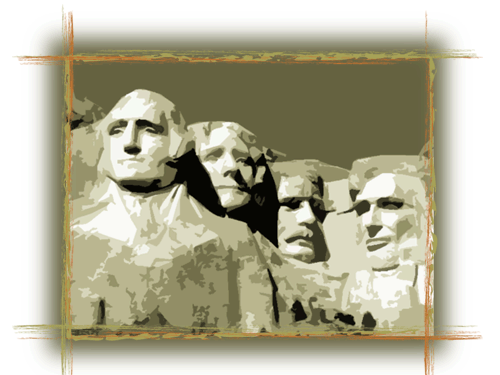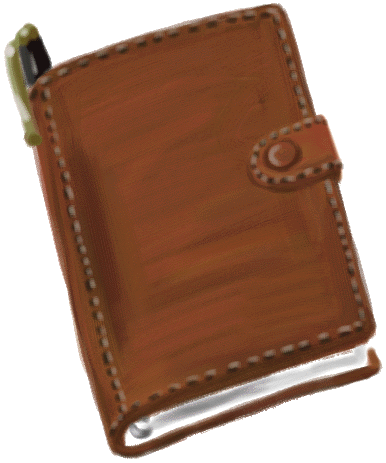政治・経済を語る№9・(資料)広島・長崎平和宣言資料など。
□
【構成】
(序)平和への私案骨格
(1)広島平和宣言(日本語)
(2)同上(英文)
(3)長崎平和宣言(日本語)
(4)同上(英文)
(5)広島・長崎平和宣言(動画)
□
□
(序)平和への私案骨格
私のHPに、後日、政経提言として、平和への道を記載予定でいる。私案の骨子のみ記す。
①人を殺す戦争という不条理なものにもルールがいる。そのルールを確立すること。
(例)原爆などは、全人類・地球そのものを破滅可能な兵器であり、使用してはならない。さらに、使用しなくなった核兵器処理が適切に行われている保証もない。
②戦争そのものをなくす道―1段階。(後日記述)
③戦争そのものをなくす道―2段階。
常設国連軍設置と、国連の平和維持軍の確立、国連関連の戦争予防部隊の拡充
④戦争そのものをなくす道―3段階。
新国際経済秩序・新国際政治秩序の構築。
→領土問題解決への国連がつくる道筋。同時に、21世紀にふさわしい国際法の改定。
⑤世界連邦創設。
□
今回は、①の段階に関する、広島と長崎の平和宣言を資料として収録する。
本年末頃から、この問題、世界の領土問題、国際法改正、沖縄米軍基地問題の解決への道……などの記述に入れることを願っている。(願うとは、営業妨害、フィールドワーク・資料収集妨害を含む膨大な妨害があるため、必ず書けるという保証がないからである。)
□
□
□
(1)広島市平和宣言
□
平和宣言
□
1945年8月6日午前8時15分。澄みきった青空を切り裂き、かつて人類が経験したことのない「絶対悪」が広島に放たれ、一瞬のうちに街を焼き尽くしました。朝鮮半島や、中国、東南アジアの人々、米軍の捕虜などを含め、子どもからお年寄りまで罪もない人々を殺りくし、その年の暮れまでに14万もの尊い命を奪いました。
□
辛うじて生き延びた人々も、放射線の障害に苦しみ、就職や結婚の差別に遭(あ)い、心身に負った深い傷は今なお消えることがありません。破壊し尽くされた広島は美しく平和な街として生まれ変わりましたが、あの日、「絶対悪」に奪い去られた川辺の景色や暮らし、歴史と共に育まれた伝統文化は、二度と戻ることはないのです。
□
当時17歳の男性は「真っ黒の焼死体が道路を塞(ふさ)ぎ、異臭が鼻を衝(つ)き、見渡す限り火の海の広島は生き地獄でした。」と語ります。当時18歳の女性は「私は血だらけになり、周りには背中の皮膚が足まで垂れ下がった人や、水を求めて泣き叫ぶ人がいました。」と振り返ります。
□
あれから71年、依然として世界には、あの惨禍をもたらした原子爆弾の威力をはるかに上回り、地球そのものを破壊しかねない1万5千発を超える核兵器が存在します。核戦争や核爆発に至りかねない数多くの事件や事故が明らかになり、テロリストによる使用も懸念されています。
□
私たちは、この現実を前にしたとき、生き地獄だと語った男性の「これからの世界人類は、命を尊び平和で幸福な人生を送るため、皆で助け合っていきましょう。」という呼び掛け、そして、血だらけになった女性の「与えられた命を全うするため、次の世代の人々は、皆で核兵器はいらないと叫んでください。」との訴えを受け止め、更なる行動を起こさなければなりません。そして、多様な価値観を認め合いながら、「共に生きる」世界を目指し努力を重ねなければなりません。
□
今年5月、原爆投下国の現職大統領として初めて広島を訪問したオバマ大統領は、「私自身の国と同様、核を保有する国々は、恐怖の論理から逃れ、核兵器のない世界を追求する勇気を持たなければならない。」と訴えました。それは、被爆者の「こんな思いを他の誰にもさせてはならない」という心からの叫びを受け止め、今なお存在し続ける核兵器の廃絶に立ち向かう「情熱」を、米国をはじめ世界の人々に示すものでした。そして、あの「絶対悪」を許さないというヒロシマの思いがオバマ大統領に届いたことの証しでした。
□
今こそ、私たちは、非人道性の極みである「絶対悪」をこの世から消し去る道筋をつけるためにヒロシマの思いを基に、「情熱」を持って「連帯」し、行動を起こすべきではないでしょうか。今年、G7の外相が初めて広島に集い、核兵器を持つ国、持たない国という立場を超えて世界の為政者に広島・長崎訪問を呼び掛け、包括的核実験禁止条約の早期発効や核不拡散条約に基づく核軍縮交渉義務を果たすことを求める宣言を発表しました。これは、正に「連帯」に向けた一歩です。
□
為政者には、こうした「連帯」をより強固なものとし、信頼と対話による安全保障の仕組みづくりに、「情熱」を持って臨んでもらわなければなりません。そのため、各国の為政者に、改めて被爆地を訪問するよう要請します。その訪問は、オバマ大統領が広島で示したように、必ずや、被爆の実相を心に刻み、被爆者の痛みや悲しみを共有した上での決意表明につながるものと確信しています。
□
被爆者の平均年齢は80歳を超え、自らの体験を生の声で語る時間は少なくなっています。未来に向けて被爆者の思いや言葉を伝え、広めていくには、若い世代の皆さんの力も必要です。世界の7千を超える都市で構成する平和首長会議は、世界の各地域では20を超えるリーダー都市が、また、世界規模では広島・長崎が中心となって、若者の交流を促進します。そして、若い世代が核兵器廃絶に立ち向かうための思いを共有し、具体的な行動を開始できるようにしていきます。
□
この広島の地で「核兵器のない世界を必ず実現する」との決意を表明した安倍首相には、オバマ大統領と共にリーダーシップを発揮することを期待します。核兵器のない世界は、日本国憲法が掲げる崇高な平和主義を体現する世界でもあり、その実現を確実なものとするためには核兵器禁止の法的枠組みが不可欠となります。また、日本政府には、平均年齢が80歳を超えた被爆者をはじめ、放射線の影響により心身に苦しみを抱える多くの人々の苦悩に寄り添い、その支援策を充実するとともに、「黒い雨降雨地域」を拡大するよう強く求めます。
□
私たちは、本日、思いを新たに、原爆犠牲者の御霊に心からの哀悼の誠を捧げ、被爆地長崎と手を携え、世界の人々と共に、核兵器廃絶と世界恒久平和の実現に向けて力を尽くすことを誓います。
□
平成28年(2016年)8月6日
広島市長 松井 一實
□
平和宣言について
□
広島市が世界最初の原子爆弾の惨禍を経験し、2年目の昭和22年(1947年)に、永遠の平和を確立しようという広島市民の願いを全世界の人々に伝え、世界的行事の一つにまで発展させたいと念願して、平和祭が行われることになりました。
□
平和祭は、同年8月5日から3日間行われましたが、6日には現在の平和記念公園の広場で式典が開かれ、この中で初めての平和宣言が浜井信三市長によって読み上げられました。この時の平和宣言は、
□
「この恐るべき兵器は恒久平和の必然性と真実性を確認せしめる「思想革命」を招来せしめた。すなわちこれによって原子力をもって争う世界戦争は人類の破滅と文明の終末を意味するという真実を世界の人々に明白に認識せしめたからである。これこそ絶対平和の創造であり、新しい人生と世界の誕生を物語るものでなくてはならない」
「今われわれが為すべきことは全身全霊をあげて平和への道を邁進し、もって新しい文明へのさきがけとなることでなければならない。
この地上より戦争の恐怖と罪悪とを抹殺して真実の平和を確立しよう。
ここに平和塔の下、われわれはかくのごとく平和を宣言する」と述べています。
□
このように戦争を否定し、平和を求める広島市民の心の底からの叫びが、一つの形となって表れました。
□
平和宣言は、広島市長が毎年8月6日の平和記念式典において発表していますが、その表現や内容には、その時代が反映されています。原水爆禁止の文字が平和宣言に初めて現れたのは、第1回原水爆禁止世界大会が開かれた翌年、昭和31年(1956年)の渡辺忠雄市長のときでした。また、戦後26年目の昭和46年(1971年)、山田節男市長は「次の世代に戦争と平和の意義を正しく継承するための平和教育」を平和宣言に明示し、昭和57年(1982年)荒木武市長は、6月の第2回国連軍縮特別総会で提唱した平和のための世界的な都市連帯の呼びかけを、その年の平和宣言に取り入れました。今日では、この都市連帯の輪は、平和首長会議として世界に大きく広がっています。
□
平成3年(1991年)平岡敬市長は、「日本はかつての植民地支配や戦争で、アジア・太平洋地域の人々に、大きな苦しみと悲しみを与えた。私たちは、そのことを申し訳なく思う」と述べました。また、平成8年(1996年)の平和宣言では、包括的核実験禁止条約の合意が「核実験の全面禁止につながること」への期待を表明するとともに、被爆の実相を語り継ぎ、広く伝えていくために「平和文化の創造」と「被爆資料の集大成」を求めました。平成9年度の平和宣言では、核兵器のない世界を実現するために、日本政府に対して「「核の傘」に頼らない安全保障体制構築への努力」を求めると同時に、私たちが言語・宗教・習俗などの違いをこえて世界の人々と率直な対話を進めることの必要性を訴えました。
□
平成11年(1999年)秋葉忠利市長は、被爆者が原爆の惨苦や絶望を乗り越え、ひたむきに核兵器の廃絶を訴え続けてきた足跡を称えた上で、核兵器は人類滅亡を引き起こす絶対悪であるとの真実に基づき、核兵器を廃絶する強い意志を持つことが何よりも大切であることを訴えました。また、宣言の歴史で初めて「です・ます調」の文体を用いました。平成12年(2000年)の平和宣言では、戦争と科学技術の世紀であった20世紀を振り返り、憎しみや暴力の連鎖を断ち「和解」への道を拓くよう訴え、平成13年(2001年)には、21世紀最初の平和宣言として、21世紀を核兵器のない「平和と人道の世紀」にするため、和解や人道を重視する勇気を持つよう訴えました。平成16年(2004年)の平和宣言では、被爆後75年目に当る2020年までに地球上から全ての核兵器を廃絶するために、「核兵器廃絶のための緊急行動」への支持を訴えました。
□
平成23年(2011年)、松井一實市長は、被爆者の高齢化が進み体験を語れる方が少なくなる中、ヒロシマの原点である被爆体験や平和への思いを次世代、そして世界の人々に共有してもらうことが重要であると考え、初めて、被爆者から頂いた被爆体験談を直接盛り込みました。また、平成27年(2015年)からは、為政者をはじめとする世界の人々に対し、核兵器廃絶に取り組む際の原動力となる信念を固めるために必要な行動理念を提示しています。
□
広島・長崎の悲惨な体験を再び世界の人々が経験することのないよう、核兵器をこの地上からなくし、いつまでも続く平和な世界を確立しようと、これからも平和宣言は訴え続けていきます。
□
□
□
(2)広島平和宣言(英文)
PEACE DECLARATION
□
1945, August 6, 8:15 a.m. Slicing through the clear blue sky, a previously unknown “absolute evil” is unleashed on Hiroshima, instantly searing the entire city. Koreans, Chinese, Southeast Asians, American prisoners of war, children, the elderly and other innocent people are slaughtered. By the end of the year, 140,000 are dead.
□
Those who managed to survive suffered the aftereffects of radiation, encountered discrimination in work and marriage, and still carry deep scars in their minds and bodies. From utter obliteration, Hiroshima was reborn a beautiful city of peace; but familiar scenes from our riversides, patterns of daily life, and cultural traditions nurtured through centuries of history vanished in that “absolute evil,” never to return.
□
He was a boy of 17. Today he recalls, “Charred corpses blocked the road. An eerie stench filled my nose. A sea of fire spread as far as I could see. Hiroshima was a living hell.” She was a girl of 18. “I was covered in blood. Around me were people with skin flayed from their backs hanging all the way to their feet—crying, screaming, begging for water.”
□
Seventy-one years later, over 15,000 nuclear weapons remain, individually much more destructive than the one that inflicted Hiroshima’s tragedy, collectively enough to destroy the Earth itself. We now know of numerous accidents and incidents that brought us to the brink of nuclear explosions or war; today we even fear their use by terrorists.
□
Given this reality, we must heed the hibakusha. The man who described a living hell says, “For the future of humanity, we need to help each other live in peace and happiness with reverence for all life.” The woman who was covered in blood appeals to coming generations, “To make the most of the life we’ve been given, please, everyone, shout loudly that we don’t need nuclear weapons.” If we accept these appeals, we must do far more than we have been doing. We must respect diverse values and strive persistently toward a world where all people are truly “living together.”
□
When President Obama visited Hiroshima in May, he became the first sitting president of the country that dropped the atomic bomb to do so. Declaring, “… among those nations like my own that hold nuclear stockpiles, we must have the courage to escape the logic of fear, and pursue a world without them,” he expressed acceptance of the hibakusha’s heartfelt plea that “no one else should ever suffer as we have.” Demonstrating to the people of the U.S. and the world a passion to fight to eliminate all remaining nuclear weapons, the President’s words showed that he was touched by the spirit of Hiroshima, which refuses to accept the “absolute evil.”
□
Is it not time to honor the spirit of Hiroshima and clear the path toward a world free from that “absolute evil,” that ultimate inhumanity? Is it not time to unify and manifest our passion in action? This year, for the first time ever, the G7 foreign ministers gathered in Hiroshima. Transcending the differences between countries with and without nuclear weapons, their declaration called for political leaders to visit Hiroshima and Nagasaki, for early entry into force of the Comprehensive Nuclear-Test-Ban Treaty, and fulfillment of the obligation to negotiate nuclear disarmament mandated by the Nuclear Non-Proliferation Treaty. This declaration was unquestionably a step toward unity.
□
We need to fill our policymakers with the passion to solidify this unity and create a security system based on trust and dialogue. To that end, I once again urge the leaders of all nations to visit the A-bombed cities. As President Obama confirmed in Hiroshima, such visits will surely etch the reality of the atomic bombings in each heart. Along with conveying the pain and suffering of the hibakusha, I am convinced they will elicit manifestations of determination.
□
The average age of the hibakusha has exceeded 80. Our time to hear their experiences face to face grows short. Looking toward the future, we will need our youth to help convey the words and feelings of the hibakusha. Mayors for Peace, now with over 7,000 city members worldwide, will work regionally, through more than 20 lead cities, and globally, led by Hiroshima and Nagasaki, to promote youth exchange. We will help young people cultivate a shared determination to stand together and initiate concrete action for the abolition of nuclear weapons.
□
Here in Hiroshima, Prime Minister Abe expressed determination “to realize a world free of nuclear weapons.” I expect him to join with President Obama and display leadership in this endeavor. A nuclear-weapon-free-world would manifest the noble pacifism of the Japanese Constitution, and to ensure progress, a legal framework banning nuclear weapons is indispensable. In addition, I demand that the Japanese government expand the “black rain areas” and improve assistance to the hibakusha, whose average age is over 80, and the many others who suffer the mental and physical effects of radiation.
□
Today, we renew our determination, offer heartfelt consolation to the souls of the A-bomb victims, and pledge to do everything in our power, working with the A-bombed city of Nagasaki and millions around the world, to abolish nuclear weapons and build lasting world peace.
□
August 6, 2016
MATSUI Kazumi
Mayor The City of Hiroshima
□
詳細は広島市HP参照。
http://www.city.hiroshima.lg.jp/www/contents/1110537278566/
□
□
□
(3)長崎平和宣言
□
平成28年 長崎平和宣言
□
長 崎 平 和 宣 言
□
核兵器は人間を壊す残酷な兵器です。
□
1945年8月9日午前11時2分、米軍機が投下した一発の原子爆弾が、上空でさく裂した瞬間、 長崎の街に猛烈な爆風と熱線が襲いかかりました。あとには、黒焦げの亡骸、全身が焼けただれた人、内臓が飛び出した人、無数のガラス片が体に刺さり苦しむ人があふれ、長崎は地獄と化しました。
□
原爆から放たれた放射線は人々の体を貫き、そのために引き起こされる病気や障害は、辛うじて生き残った人たちを今も苦しめています。
□
核兵器は人間を壊し続ける残酷な兵器なのです。
□
今年5月、アメリカの現職大統領として初めて、オバマ大統領が被爆地・広島を訪問しました。大統領は、その行動によって、自分の目と、耳と、心で感じることの大切さを世界に示しました。
□
核兵器保有国をはじめとする各国のリーダーの皆さん、そして世界中の皆さん。長崎や広島に来てください。原子雲の下で人間に何が起きたのかを知ってください。事実を知ること、それこそが核兵器のない未来を考えるスタートラインです。
□
今年、ジュネーブの国連欧州本部で、核軍縮交渉を前進させる法的な枠組みについて話し合う会議が開かれています。法的な議論を行う場ができたことは、大きな前進です。しかし、まもなく結果がまとめられるこの会議に、核兵器保有国は出席していません。そして、会議の中では、核兵器の抑止力に依存する国々と、核兵器禁止の交渉開始を主張する国々との対立が続いています。このままでは、核兵器廃絶への道筋を示すことができないまま、会議が閉会してしまいます。
□
核兵器保有国のリーダーの皆さん、今からでも遅くはありません。この会議に出席し、議論に参加してください。
□
国連、各国政府及び国会、NGOを含む市民社会に訴えます。核兵器廃絶に向けて、法的な議論を行う場を決して絶やしてはなりません。今年秋の国連総会で、核兵器のない世界の実現に向けた法的な枠組みに関する協議と交渉の場を設けてください。そして、人類社会の一員として、解決策を見出す努力を続けてください。
□
核兵器保有国では、より高性能の核兵器に置き換える計画が進行中です。このままでは核兵器のない世界の実現がさらに遠のいてしまいます。
□
今こそ、人類の未来を壊さないために、持てる限りの「英知」を結集してください。
□
日本政府は、核兵器廃絶を訴えながらも、一方では核抑止力に依存する立場をとっています。この矛盾を超える方法として、非核三原則の法制化とともに、核抑止力に頼らない安全保障の枠組みである「北東アジア非核兵器地帯」の創設を検討してください。核兵器の非人道性をよく知る唯一の戦争被爆国として、非核兵器地帯という人類のひとつの「英知」を行動に移すリーダーシップを発揮してください。
□
□
核兵器の歴史は、不信感の歴史です。
□
国同士の不信の中で、より威力のある、より遠くに飛ぶ核兵器が開発されてきました。世界には未だに1万5千発以上もの核兵器が存在し、戦争、事故、テロなどにより、使われる危険が続いています。
□
この流れを断ち切り、不信のサイクルを信頼のサイクルに転換するためにできることのひとつは、粘り強く信頼を生み続けることです。
□
我が国は日本国憲法の平和の理念に基づき、人道支援など、世界に貢献することで信頼を広げようと努力してきました。ふたたび戦争をしないために、平和国家としての道をこれからも歩み続けなければなりません。
□
市民社会の一員である私たち一人ひとりにも、できることがあります。国を越えて人と交わることで、言葉や文化、考え方の違いを理解し合い、身近に信頼を生み出すことです。オバマ大統領を温かく迎えた広島市民の姿もそれを表しています。市民社会の行動は、一つひとつは小さく見えても、国同士の信頼関係を築くための、強くかけがえのない礎となります。
□
被爆から71年がたち、被爆者の平均年齢は80歳を越えました。世界が「被爆者のいない時代」を迎える日が少しずつ近づいています。戦争、そして戦争が生んだ被爆の体験をどう受け継いでいくかが、今、問われています。
□
若い世代の皆さん、あなたたちが当たり前と感じる日常、例えば、お母さんの優しい手、お父さんの温かいまなざし、友だちとの会話、好きな人の笑顔…。そのすべてを奪い去ってしまうのが戦争です。
□
戦争体験、被爆者の体験に、ぜひ一度耳を傾けてみてください。つらい経験を語ることは苦しいことです。それでも語ってくれるのは、未来の人たちを守りたいからだということを知ってください。
□
長崎では、被爆者に代わって子どもや孫の世代が体験を語り伝える活動が始まっています。焼け残った城山小学校の校舎などを国の史跡として後世に残す活動も進んでいます。
□
若い世代の皆さん、未来のために、過去に向き合う一歩を踏み出してみませんか。
□
福島での原発事故から5年が経過しました。長崎は、放射能による苦しみを体験したまちとして、福島を応援し続けます。
□
日本政府には、今なお原爆の後遺症に苦しむ被爆者のさらなる援護の充実とともに、被爆地域の拡大をはじめとする被爆体験者の一日も早い救済を強く求めます。
□
原子爆弾で亡くなられた方々に心から追悼の意を捧げ、私たち長崎市民は、世界の人々とともに、核兵器廃絶と恒久平和の実現に力を尽くすことをここに宣言します。
□
□
2016年(平成28年)8月9日
長崎市長 田上 富久
□
※長崎市平和・原爆 長崎平和宣言
http://nagasakipeace.jp/japanese/peace/appeal.html
□
□
□
(4)長崎市平和宣言(英文)
□
Nagasaki Peace Declaration
□
Nuclear weapons are cruel weapons that destroy human beings.
The instant that the single nuclear bomb dropped by a U.S. military aircraft on Nagasaki City at 11:02AMon August 9, 1945, exploded in the air, it struck the city with a furious blast and heat wave. Nagasaki City was transformed into a hell on earth; a hell of black-charred corpses, people covered in blistering burns, people with their internal organs spilling out, and people cut and studded by the countless fragments of flying glass that had penetrated their bodies.
□
The radiation released by the bomb pierced people’s bodies, resulting in illnesses and disabilities that still afflict those who narrowly managed to survive the bombing.
□
Nuclear weapons are cruel weapons that continue to destroy human beings.
□
In May this year, President Obama became the first sitting U.S. President to visit Hiroshima, a city which was bombed with a nuclear weapon.In doing so, the President showed the rest of the world the importance of seeing, listening and feeling things for oneself.
□
I appeal to the leaders of states which possess nuclear weapons and other countries, and to the people of the world: please come and visit Nagasaki and Hiroshima. Find out for yourselves what happened to human beings beneath the mushroom cloud. Knowing the facts becomes the starting point for thinking about a future free of nuclear weapons.
□
This year at the United Nations Office at Geneva, sessions are being held to deliberate a legal framework that will take forward nuclear disarmament negotiations. The creation of a forum for legal discussions is a huge step forward. However, countries in possession of nuclear weapons have not attended these meetings, the results of which will be compiled shortly. Moreover, conflict continues between the nations that are dependent on nuclear deterrence and those that are urging for a start ofnegotiations to prohibit nuclear weapons. If this situation continues, then the meetings will end without the creation of a roadmap for nuclear weapons abolition.
□
Leaders of countries possessingnuclear weapons, it is not yet too late. Please attend the meetings and participate in the debate.
□
I appeal to the United Nations, governments and national assemblies, and the civil societyincluding NGOs. We must not allow the eradication of these forums where we can discuss legal frameworks for the abolition of nuclear weapons. At the United Nations General Assembly this fall, please provide a forum for discussing and negotiating a legal framework aimed at the realization of a world without nuclear weapons. And as members of human society, I ask you all to continue to make every effort to seek out a viable solution.
□
Countries which possess nuclear weapons are currently carrying out plans to make their nuclear weapons even more sophisticated. If this situation continues, the realization of a world without nuclear weapons will become even more unlikely.
□
Now is the timefor all of you to bring together as much of your collective wisdom as you possibly can, and act so that we do not destroy the future of mankind.
□
The Government of Japan, while advocating nuclear weapons abolition, still relies on nuclear deterrence. As a method to overcome this contradictory state of affairs, please enshrine the Three Non-Nuclear Principles in law, and create a “Northeast Asia Nuclear Weapons-Free Zone” (NEA-NWFZ) as a framework for security that does not rely on nuclear deterrence. As the only nation in the world to have suffered a nuclear bombing during wartime, and as a nation that understands only too well the inhumanity of these weapons, I ask the Government of Japan to display leadership in taking concrete action regarding the creat display leadership in taking concrete action regarding the creation of a nuclear weapons-free zone, a concept that embodies mankind’s wisdom.
□
The history of nuclear weapons is also the history of distrust.
□
In the midst of this distrust between nations, countries with nuclear weapons have developed evermore destructive weapons with increasingly distant target ranges. There are still over 15,000 nuclear warheads in existence, and there is the ever-present danger that they may be used in war, by accident, or as an act of terrorism.
□
One way of stemming this flow and turning the cycle of distrust into a cycle of trust is to continue with persistent efforts to create trust.
□
In line with the peaceful ethos of theConstitution of Japan, we have endeavored to spread trust throughout the world by contributing to global society through efforts such as humanitarian aid. In order that we never again descend into war, Japan must continue to follow this path as a peacefulnation.
□
There is also something that each and every one of us can do as members of civil society. This is to mutually understand the differences in each other’s languages, cultures and ways of thinking, and to create trust on a familiar level by taking part in exchange with people regardless of their nationality. The warm reception given to President Obama by the people of Hiroshima is one example of this. The conduct of civil society may appear small on an individual basis, but it is in fact a powerful and irreplaceable tool for building up relationships of trust between nations.
□
Seventy-oneyears after the atomic bombings, the average age of the hibakusha, atomic bomb survivors, exceeds 80. The world is steadily edging towards “an era without any hibakusha.” The question we face now is how to hand down to future generations the experiences of war and the atomic bombing that was the result of that war.
□
You who are the young generation, all the daily things that you take for granted -your mother’s gentle hands, your father’s kind look, chatting with your friends, the smiling face of the person you like -war takes these from you, forever.
□
Please take the time to listen to war experiences, and the experiences of the hibakusha. Talking about such terrible experiences is not easy. I want you all to realize that the reason these people still talk about what they went through is because they want to protect the people of the future.
□
Nagasaki has started activities in which the children and grandchildren of the hibakushaare conveying the experiences of their elders. We are also pursuing activities to have the bombed schoolhouse at Shiroyama Elementary School, and other sites, registered as Historic Sites of Japan, so that they can be left for future generations.
Young people, for the sake of the future, will you face up to the past and thereby take a step forward?
□
It is now over five years since the nuclear reactor accident in Fukushima. As a place that has suffered from radiation exposure, Nagasaki will continue to support Fukushima.
□
As for the Government of Japan, we strongly demand that wide-ranging improvements are made to the support provided to the hibakusha, who still to this day suffer from the aftereffects of the bombing, and that swift aid is given to all those who experienced the bombing, including the expansion of the area designated as having been affected by the atomic bomb.
□
We, the citizens of Nagasaki, offer our most heartfelt condolences to those who lost their lives to the atomic bomb. We hereby declare that together with the people of the world, we will continue to use all our strength to achieve a world without nuclear weapons, and to realize everlasting peace.
□
Tomihisa Taue
Mayor of Nagasaki
August 9, 2016
□
※参考→長崎市平和・原爆 長崎平和宣言
http://nagasakipeace.jp/japanese/peace/appeal/pdf.html
□
□
□
(5)広島・長崎平和宣言(ビデオ)
□
2016年広島市長平和宣言 Hiroshima Peace Declaration by Mayor Matsui
□
長崎平和宣言 2016年








